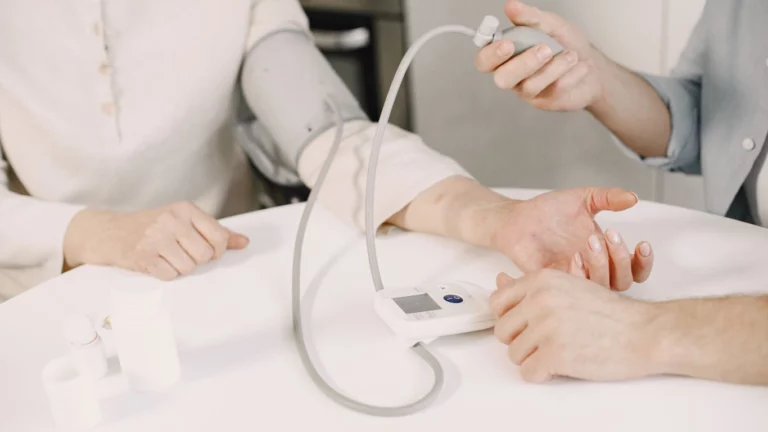Can Stress Worsen Rheumatoid Arthritis? – A Deep Dive into the Connection
Are you dealing with the pain of rheumatoid arthritis (RA) and wondering if stress is making it worse? You’re not alone. Many people with RA have asked the same question. Here’s the scoop on whether stress can affect your rheumatoid arthritis and what you can do about it.
If you have rheumatoid arthritis (RA), you know the pain and stiffness it can cause in your joints. But did you know that stress might make it worse? Yeah, it’s true! In this article, we’ll explore whether stress can affect RA, the science behind it, and what you can do to manage both.
What is Rheumatoid Arthritis?
Before we get into the stress connection, let’s quickly talk about what rheumatoid arthritis is. RA is an autoimmune condition where your body’s immune system attacks the lining of your joints. This leads to inflammation, pain, and swelling. Over time, it can cause joint damage. It’s a chronic condition that tends to flare up, meaning the symptoms can get worse at certain times.

Can Stress Worsen Rheumatoid Arthritis?
Now, the big question: can stress make your rheumatoid arthritis worse? The short answer is yes, stress can have an impact on RA. But how does it work? Let’s break it down.
The Link Between Stress and Inflammation
Stress doesn’t just mess with your mind; it also affects your body in a big way. When you’re stressed, your body releases stress hormones like cortisol and adrenaline. These hormones prepare your body to handle a “fight-or-flight” situation. But when stress is ongoing (like it often is for people with chronic conditions like RA), your body stays in a heightened state of alert.
This continuous activation of the stress response can increase inflammation in your body. And since RA is all about inflammation, higher inflammation levels can lead to more pain, stiffness, and swelling in your joints. Essentially, stress can make your immune system work overtime, which may trigger or worsen RA symptoms.

Research on Stress and RA
Studies have shown that people with RA who experience high levels of stress tend to report more frequent flare-ups. One study found that psychological stress can lead to increased pain perception and joint tenderness in people with RA. Another study highlighted that people who had emotional distress were more likely to experience severe RA symptoms.
While stress alone might not cause RA, it seems to exacerbate existing inflammation, making the symptoms harder to control. This is why managing stress is so important if you have RA.
How Stress Affects RA: The Physiological Response
To understand how stress makes RA worse, let’s dive into the biology a little. When you’re stressed, your body’s “fight-or-flight” response kicks in, increasing your heart rate and releasing cortisol. Over time, if this stress continues without relief, cortisol levels stay elevated, and your body can become more prone to inflammation.
Inflammation is a key player in rheumatoid arthritis, so this constant stress-induced inflammation can lead to more flare-ups. In fact, some people with RA notice that their joints feel worse when they’re under a lot of stress, and they may experience more pain and stiffness.

Managing Stress to Help Manage RA
The good news is that while stress can worsen RA, there are things you can do to reduce stress and, in turn, help manage your arthritis symptoms. Here are a few tips that might help:
1. Practice Mindfulness and Relaxation Techniques
Mindfulness techniques like deep breathing, meditation, and yoga can help calm your mind and reduce the stress response in your body. Even just a few minutes a day of focusing on your breath or doing a body scan can help lower your stress levels.
2. Regular Physical Activity
Exercise might seem counterintuitive when you have arthritis pain, but gentle movement can actually help reduce stress and inflammation. Low-impact exercises like swimming, walking, or cycling can improve your joint health, reduce stiffness, and boost your mood.
3. Get Enough Sleep
When you’re not getting enough rest, your body’s stress response becomes more pronounced. Lack of sleep can increase inflammation, so getting enough quality sleep is essential for both managing RA and stress. Aim for 7-9 hours per night, and try to keep a consistent sleep schedule.
4. Seek Support
Living with a chronic condition like RA can feel isolating, but talking to others who understand can help reduce emotional stress. Support groups, whether online or in person, can offer a sense of community and help you manage the emotional toll of RA.
5. Talk to Your Doctor
If you’re noticing that stress is making your RA worse, it’s a good idea to talk to your doctor. They might adjust your treatment plan or suggest additional strategies to manage your stress and arthritis together.
Conclusion
So, can stress worsen rheumatoid arthritis? Yes, it absolutely can. Stress can increase inflammation in your body, which may make your RA symptoms flare up. However, managing stress through relaxation techniques, regular exercise, good sleep, and support can make a big difference in how you feel. Don’t let stress take over—take control and use the tools that work for you!
Appendices
FAQs
- Does stress directly cause rheumatoid arthritis? No, stress doesn’t cause RA, but it can exacerbate the symptoms of the disease.
- Can stress make RA flare-ups worse? Yes, stress can increase inflammation and trigger flare-ups in people with RA.
- What are some ways to reduce stress with RA? Techniques like deep breathing, exercise, sleep, and support groups can help reduce stress and improve RA symptoms.
- Does meditation help with rheumatoid arthritis? Yes, meditation can help reduce stress and inflammation, which may alleviate RA symptoms.
- Should I see a doctor if stress is worsening my RA? Yes, it’s always a good idea to consult your doctor if you’re experiencing worsened symptoms due to stress.
References
For more information on the connection between stress and rheumatoid arthritis, check out these sources:
- American College of Rheumatology. (2023). Stress and Rheumatoid Arthritis: The Hidden Link. Read Article
- Smith, L., & Jones, K. (2021). The Impact of Stress on Chronic Inflammatory Diseases. Journal of Rheumatology, 45(2), 201-210. Read Article
- National Institute of Arthritis and Musculoskeletal and Skin Diseases (NIAMS). (2024). Stress and Arthritis: What You Need to Know. Read Article
Disclaimer:
The information provided in this article is for educational purposes only and should not be considered as medical advice. Always consult with a healthcare provider for personalized advice and treatment regarding rheumatoid arthritis and stress management. Individual needs may vary, and professional guidance is essential for proper care.

Tarra Nugroho is a dedicated Nurse Practitioner with a strong foundation in family and preventive care. She brings both compassion and clinical expertise to her practice, focusing on patient-centered care and health education. As a contributor to Healthusias.com, Tarra translates medical knowledge into clear, empowering articles on topics like women’s health, chronic disease management, and lifestyle medicine. Her mission is simple: help people feel seen, heard, and informed—both in the clinic and through the content she creates. When she’s not caring for patients, Tarra enjoys weekend hikes, plant-based cooking, and curling up with a good health podcast.







